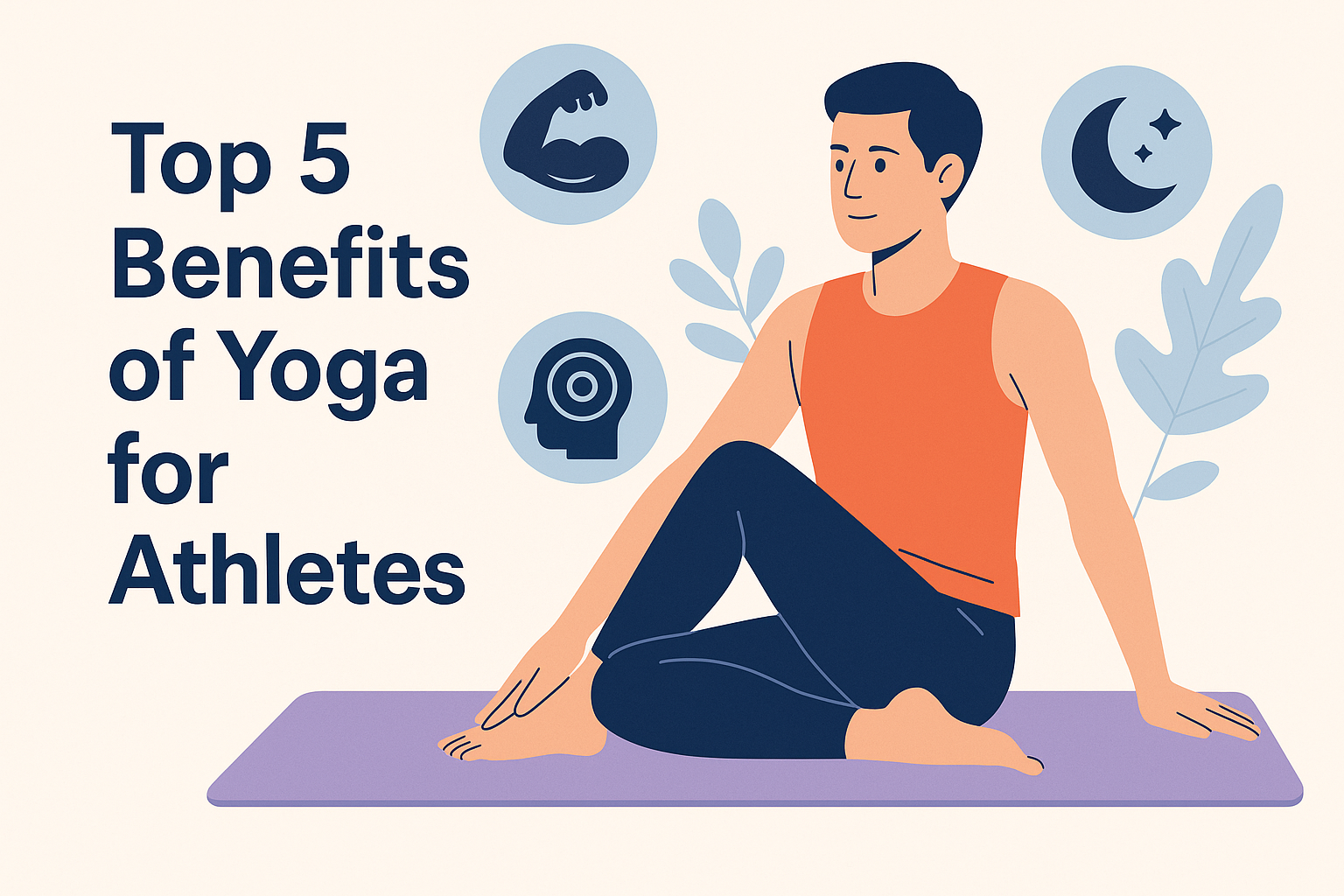In today’s competitive sports world, athletes are constantly looking for ways to improve performance, prevent injuries, and speed up recovery. While strength training and cardio are essential, one practice that often gets overlooked is yoga. Traditionally seen as a spiritual and wellness practice, yoga has now become a powerful tool for athletes across all disciplines. From increasing flexibility to improving mental focus, yoga offers a wide range of benefits that can enhance both physical and mental performance.
In this article, we’ll explore the top 5 benefits of yoga for athletes and why it should be an integral part of every training routine.
1. Improved Flexibility and Mobility
Athletes often develop tight muscles due to repetitive movements in their sport. For example, runners may experience tight hamstrings, while weightlifters often have stiff shoulders and hips.
Yoga helps:
- Lengthen and stretch muscles safely.
- Improve joint mobility.
- Reduce stiffness and increase range of motion.
With better flexibility, athletes can move more efficiently, maintain proper form, and lower the risk of injuries caused by muscle imbalances.
2. Enhanced Strength and Stability
Contrary to the belief that yoga is only about stretching, many poses require significant strength and balance. Poses like plank, warrior, and chair pose engage core muscles, stabilizers, and even build endurance.
Benefits for athletes include:
- Stronger stabilizing muscles to support explosive movements.
- Better balance and coordination for sports like basketball, soccer, and tennis.
- Functional strength that complements traditional weight training.
3. Faster Recovery and Injury Prevention
Recovery is just as important as training. Without proper recovery, athletes risk overtraining and injury. Yoga promotes recovery through:
- Improved blood circulation, which helps deliver nutrients to muscles.
- Stretching and relaxation techniques that reduce lactic acid buildup.
- Breathing practices that lower stress and support faster healing.
Many professional athletes now use yoga as an active recovery method on rest days to keep their bodies primed without adding intense strain.
4. Better Mental Focus and Concentration
Sports performance isn’t just physical—it requires strong mental discipline. Yoga integrates mindfulness and meditation techniques, teaching athletes how to control their breathing, stay calm under pressure, and improve concentration.
Key benefits include:
- Improved ability to stay focused during competition.
- Reduced performance anxiety.
- Greater resilience in high-pressure situations.
This mental edge can be the difference between winning and losing, especially in competitive sports.
5. Stress Reduction and Improved Sleep
Training schedules, competitions, and travel can create physical and mental stress for athletes. Yoga offers tools to manage stress through deep breathing, meditation, and restorative postures.
The benefits are clear:
- Lower stress hormones like cortisol.
- Improved sleep quality for better recovery.
- Enhanced overall well-being, leading to consistent performance.
Conclusion
The benefits of yoga for athletes go far beyond flexibility. From building strength and improving recovery to enhancing focus and reducing stress, yoga is a well-rounded practice that supports athletic performance. Whether you’re a professional athlete or a weekend warrior, integrating yoga into your training routine can help you reach your peak potential.
By dedicating even a few sessions per week, athletes can experience both immediate and long-term improvements in performance, health, and mental resilience.
Related Articles :













